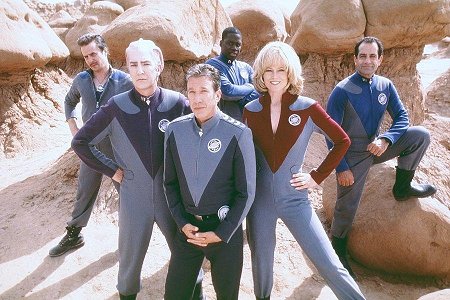Why do I write these words every day? Why does anybody write anything? Presumably we wish our words to connect with other people, a larger purpose, or even history itself. Just as there is really no such thing, in any meaningful way, as a human being living in isolation from other human beings, it is clear that there is something about us, about humans, that only comes into its full dimension within the flow of history: Personal history, history of our community, of our tribe, a sense of our particular time and place on this planet.
When I think back on what I consider the most significant lives lived, the lives that for me have done the most to break through the bounds of mortality and echo down through the centuries, inspiring those that came after, I think of those who have broken through time and space, by virtue of the sheer power of their words and their ideas.
To name only a few among many, each in their unique way: Shakespeare, Goethe, Austen, Chaucer, Cervantes, Siddhartha, Aristotle. Do these individuals not represent the very promise of humanity? They remind us, by the example of their ideas, that we may create something out of these extraordinary minds of ours, and then pass that creation down to others. One more lamp lit against the darkness to make sense out of life. Why else are we here? What other sense does any of it make?
What would be the greatest of tragedies to us as humans? Not so much the loss of our lives, for aren’t we, each of us, destined to leave the planet soon enough anyway? No, I think far worse would be the loss of our legacy, of that hard-fought cumulative birthright of knowledge and wisdom that we have been gradually building, brick by brick, and handing down to each other through the generations. This is why, so many centuries later, the loss of the Library of Alexandria is still seen by scholars as a tragedy of almost unimaginable proportions.
And so we come to April 11, the beginning of our own very strange modern tragedy, a tragedy that unfolded over several days, that should have been averted, and that may very well come to define us, to define even our era in history.
I think that the specific events that led to this tragedy began somewhat earlier, on Thursday, March 1, 2001, in Kabul. That was the day that the Taliban militia began to carry out the edict that their supreme leader Mulla Mohammad Omar had handed down to systematically destroy the giant statues of Buddha which had stood for two thousand years in Afghanistan.
I remember being puzzled, at the time, that there was not a greater outcry from the United States. Of course there were diplomatic words of bafflement, of disappointment, but there was no sense of emergency. And yet it was clear that something unprecedented was happening. History itself was being destroyed deliberately, systematically. Cultural memory was being wiped out on purpose.
On that day, I remember feeling that a line had been crossed. Somehow I had naively thought that the United States would step in when it came to the destruction of history itself, that the United States would understand that this signaled a new kind of malignancy loose upon the world, unlike any that had come before.
But I was wrong. The U.S. was completely oblivious. And that is how we came, gradually, through a series of unspeakable events, to April 11, and then April 12, and even then it was not too late. But the day after that it would be.
More on this tomorrow.


